Some of the world's most innovative ideas and creations have started out in a rejection pile.
One of this year's Nobel Prize winners for medicine previously saw his findings on how cells respond to changes in oxygen levels turned down for publication. In 1992, the journal Nature rejected Peter J. Ratcliffe's article, telling him that "we have sadly concluded, on balance, that your paper would be better placed in a more specialized journal, particularly given the competition for space." Twenty-seven years later, judges praised Ratcliffe and fellow winners William Kaelin Jr. and Gregg Semenza for discoveries that could lead to "promising new strategies to fight anaemia, cancer and many other diseases."
Ratcliffe's vindication is an old Nobel tradition, and not just for medicine. Several science winners, from Enrico Fermi to Murray Gell-Mann, had their findings initially rejected. Hans Krebs was informed by Nature in 1937 that there was no space for his paper on the citrus acid cycle, now better known as the Krebs Cycle, and the basis for his 1953 medal. Rosalyn S. Yalow, winner of a Nobel in 1977, was informed years earlier by The Journal of Clinical Investigation that her landmark findings on insulin and antibodies were "dogmatic" and "not warranted by the data."
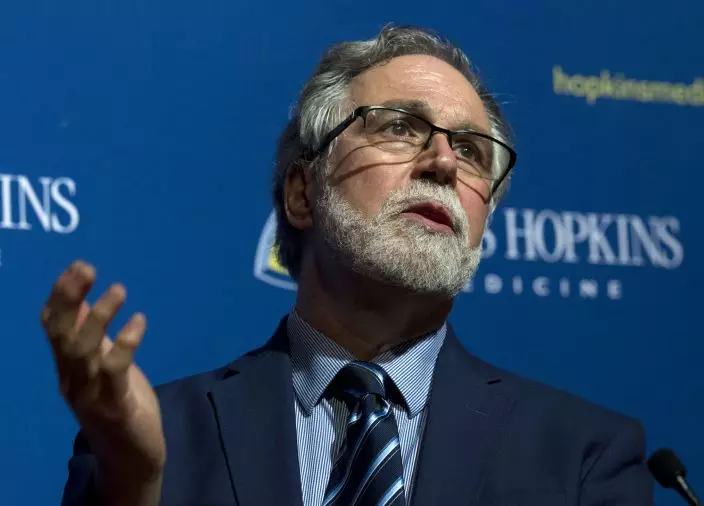
Professor Gregg L. Semenza speaks during a news conference after he was awarded the Nobel Prize for Physiology or Medicine at Johns Hopkins Medicine Hospital in Baltimore, Monday, Oct. 7, 2019. Semenza shares the prize with Drs. William G. Kaelin Jr. and Peter J. Ratcliffe for their discoveries of how cells sense and adapt to oxygen availability, the Nobel Committee announced Monday. (AP PhotoJose Luis Magana)
In literature, some of the most celebrated writers were once considered too strange, too limited or just too boring. Several publishers turned down Toni Morrison's first novel, "The Bluest Eye," and she was chastised for years by white critics for focusing too much on black characters. The novelist Reynolds Price would cite her for "the understandable but weakening omission of active white characters," an opinion he later withdrew about the 1993 laureate.
Ernest Hemingway was at the center of American letters when he won the Nobel, in 1954, but at the start, he was criticized for his minimalist style and libertine characters. In turning down "The Sun Also Rises," Hemingway's landmark novel about the 1920s "lost generation," Moberley Luger of publisher Peacock & Peacock called Hemingway's work "both tedious and offensive."
"You really are a man's man, aren't you?" Luger told the author in 1925, the year before Scribner's released his book. "I wouldn't be surprised to hear that you had penned this entire story locked up at the club, ink in one hand, brandy in the other. Your bombastic, dipsomaniac, where-to-now characters had me reaching for my own glass of brandy."
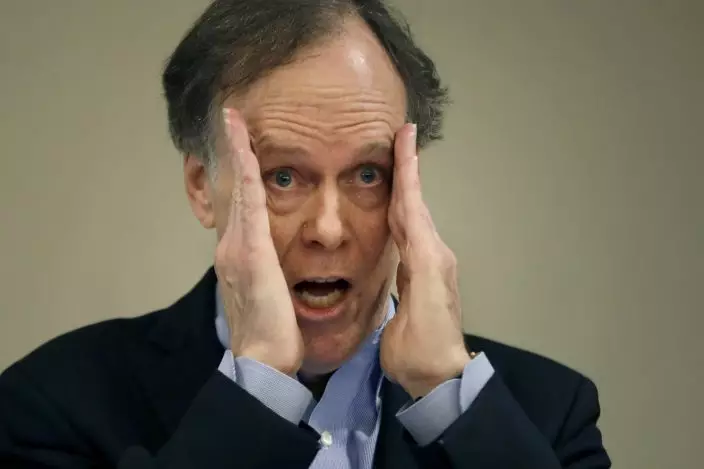
William G. Kaelin Jr. speaks at a news conference, Monday, Oct. 7, 2019, in Boston, after he was awarded the Nobel Prize for Physiology or Medicine. Kaelin, who teaches at Harvard Medical School, shares the prize with Peter J. Ratcliffe and Gregg L. Semenza for their discoveries of how cells sense and adapt to oxygen availability, the Nobel Committee announced Monday. (AP PhotoElise Amendola)
Other literature winners enduring initial discouragement were Pearl Buck, Isaac Beshevis Singer and 1983 laureate William Golding, whose Dystopian classic "Lord of the Flies" was rejected numerous times. Faber & Faber editor Charles Monteith described the book as an "Absurd & uninteresting fantasy." It was "Rubbish & dull. Pointless."
That was Monteith's reaction after the first chapter. He then kept reading, suggested that he and Golding meet and worked on some revisions.
"I have just finished reading the galleys of 'Lord of the Flies' and I'm even more enthusiastic about it than I was before," he eventually told the author, whose book was released by Faber in 1954. "Though I must have read it through four or five times by now, I still simply couldn't put the proofs down until I had finished them. It's had precisely the same effect on several other people here; indeed, in two cases I have had complaints that it resulted in nightmares! What a terrific book it is."
UNITED NATIONS (AP) — The United States vetoed a widely backed U.N. resolution on Thursday that would have paved the way for full United Nations membership for Palestine, a goal the Palestinians have long sought.
The vote in the 15-member Security Council was 12 in favor, the United States opposed and two abstentions, from the United Kingdom and Switzerland. U.S. allies France, Japan and South Korea supported the resolution.
The resolution would have recommended that the 193-member General Assembly, where there are no vetoes, approve Palestine becoming the 194th member of the United Nations. Some 140 countries have already recognized Palestine, so its admission would have been approved, likely by a much higher number of countries.
U.S. deputy ambassador Robert Wood told the council the U.S. veto “does not reflect opposition to Palestinian statehood, but instead is an acknowledgment that it will only come from direct negotiations between the parties."
Before the vote, U.S. deputy State Department spokesman Vedant Patel said the United States has “been very clear consistently that premature actions in New York — even with the best intentions — will not achieve statehood for the Palestinian people.”
This is the second Palestinian attempt for full membership and it comes as the war in Gaza has put the more than 75-year-old Israeli-Palestinian conflict at center stage.
Palestinian President Mahmoud Abbas first delivered the Palestinian Authority’s application for U.N. membership in 2011. That bid failed because the Palestinians didn’t get the required minimum support of nine of the Security Council’s 15 members.
The Palestinians then went to the General Assembly, and by more than a two-thirds majority succeeded in having their status raised from a U.N. observer to a non-member observer state in November 2012. That opened the door for the Palestinian territories to join U.N. and other international organizations, including the International Criminal Court.
The strong support the Palestinians received Thursday reflects not only the growing number of countries recognizing their statehood but almost certainly the widespread global support for Palestinians caught in the war in Gaza, now in its seventh month.
Algeria’s U.N. Ambassador Amar Bendjama, the Arab representative on the council who introduced the resolution, called Palestine’s admission “a critical step toward rectifying a longstanding injustice" and said that “Peace will come from Palestine’s inclusion, not from its exclusion.”
In explaining the U.S. veto, Wood said there are “unresolved questions” on whether Palestine meets the criteria to be considered a state. He pointed to Hamas still exerting power and influence in the Gaza Strip, which is a key part of the state envisioned by the Palestinians.
Wood stressed the U.S. commitment to a two-state solution where Israel and Palestine live side-by-side in peace as the only path for both sides to live with security and for Israel to establish relations with all its Arab neighbors, including Saudi Arabia.
“The United States is committed to intensifying its engagement with the Palestinians and the rest of the region, not only to address the current crisis in Gaza, but to advance a political settlement that will create a path to Palestinian statehood and membership in the United Nations,” he said.
Ziad Abu Amr, special representative of the Palestinian president, said adopting the resolution would grant the Palestinian people hope “for a decent life within an independent state.”
He stressed to the Security Council that it wouldn't be an alternative “for serious negotiations that are time-bound to implement the two-state solution” and U.N. resolutions, and to resolve pending issues between Palestinians and Israelis.
“To grant the state of Palestine full membership will be an important pillar to achieve peace in our region, because the Palestinian-Israeli conflict and its different dimensions now goes beyond the borders of Palestine and Israel and impacts other regions in the Middle East and around the world,” the Palestinian envoy said before the vote.
Israeli-Palestinian negotiations have been stalled for years, and Israel’s right-wing government is dominated by hard-liners who oppose Palestinian statehood.
Israeli U.N. Ambassador Gilad Erdan called the resolution “disconnected to the reality on the ground” and warned that it “will cause only destruction for years to come and harm any chance for future dialogue.”
Six months after the Oct. 7 attack by Hamas, which controlled Gaza, and the killing of 1,200 people in “the most brutal massacre of Jews since the Holocaust,” he accused the Security Council of seeking “to reward the perpetrators of these atrocities with statehood.”
Israel’s military offensive in response has killed over 32,000 Palestinians, according to Gaza’s health ministry, and destroyed much of the territory.
Erdan listed the requirements for U.N. membership — accepting the obligations in the U.N. Charter and especially being a “peace-loving” state.
“What a joke,” he said. “Does anyone doubt that the Palestinians failed to meet these criteria? Did anyone hear any Palestinian leader even condemn the massacre of our children?”
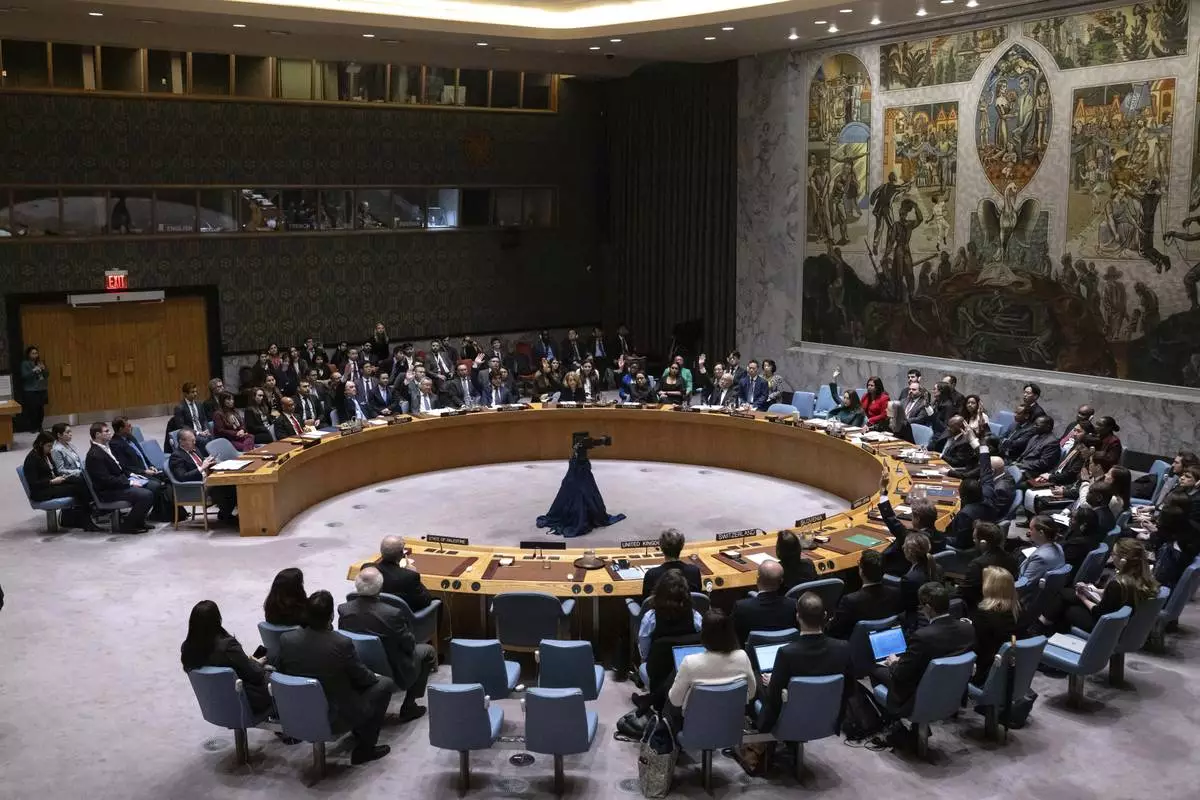
Representatives of member countries take votes during a Security Council meeting at United Nations headquarters, Thursday, April 18, 2024. (AP Photo/Yuki Iwamura)
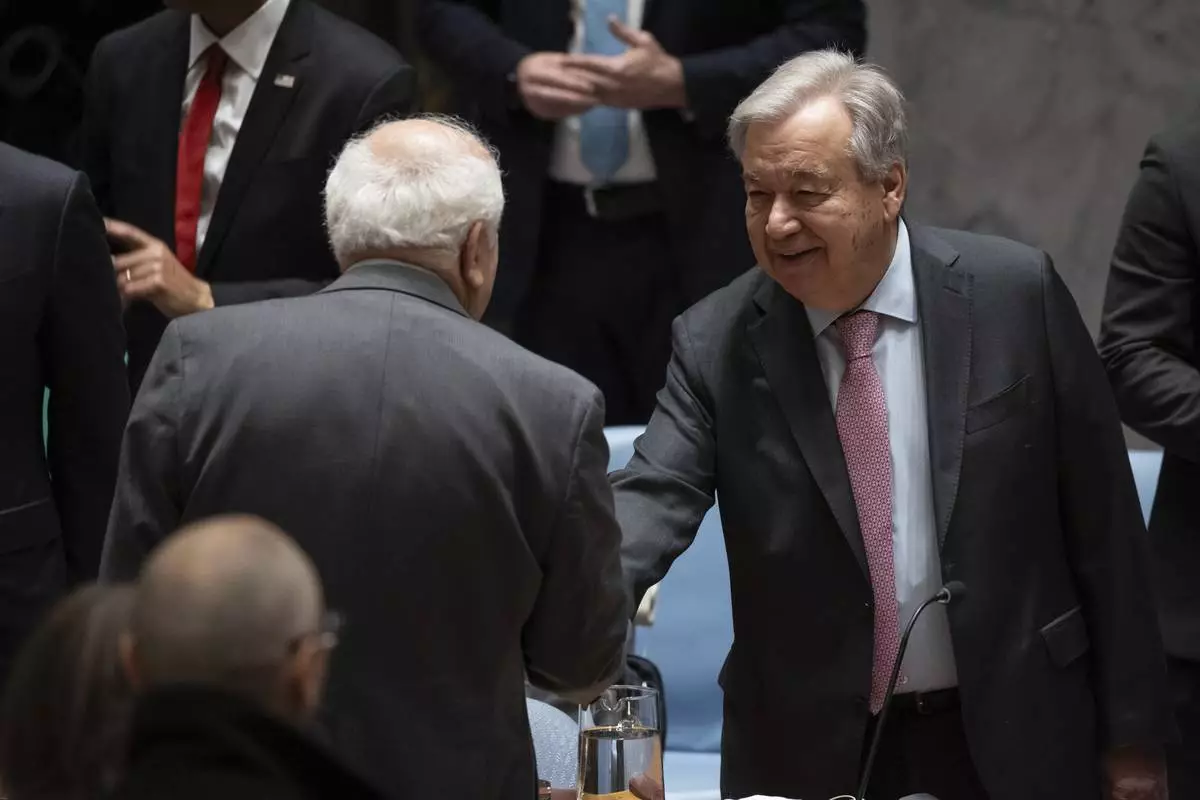
Palestinian Ambassador to the United Nations Riyad Mansour, left, and United Nations Secretary-General Antonio Guterres speak before a Security Council meeting at the United Nations headquarters, Thursday, April 18, 2024. (AP Photo/Yuki Iwamura)
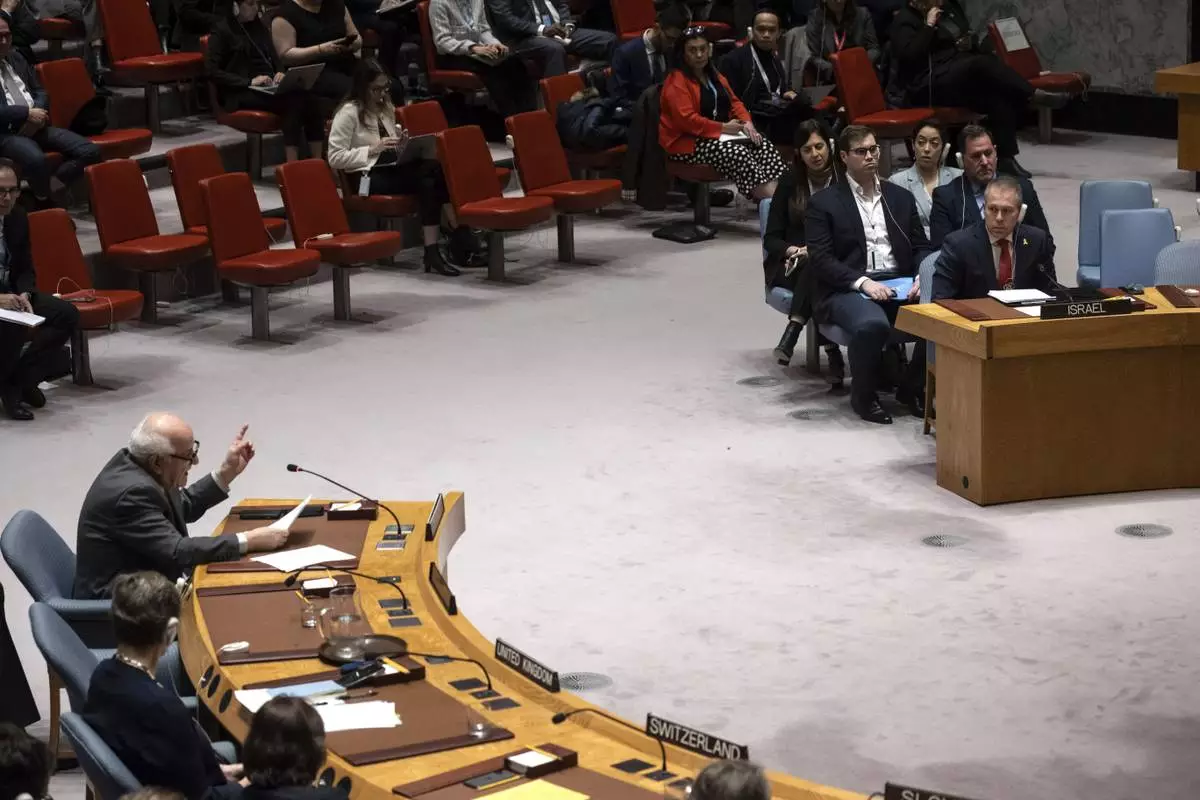
Palestinian Ambassador to the United Nations Riyad Mansour speaks during a Security Council meeting at United Nations headquarters, Thursday, April 18, 2024. (AP Photo/Yuki Iwamura)
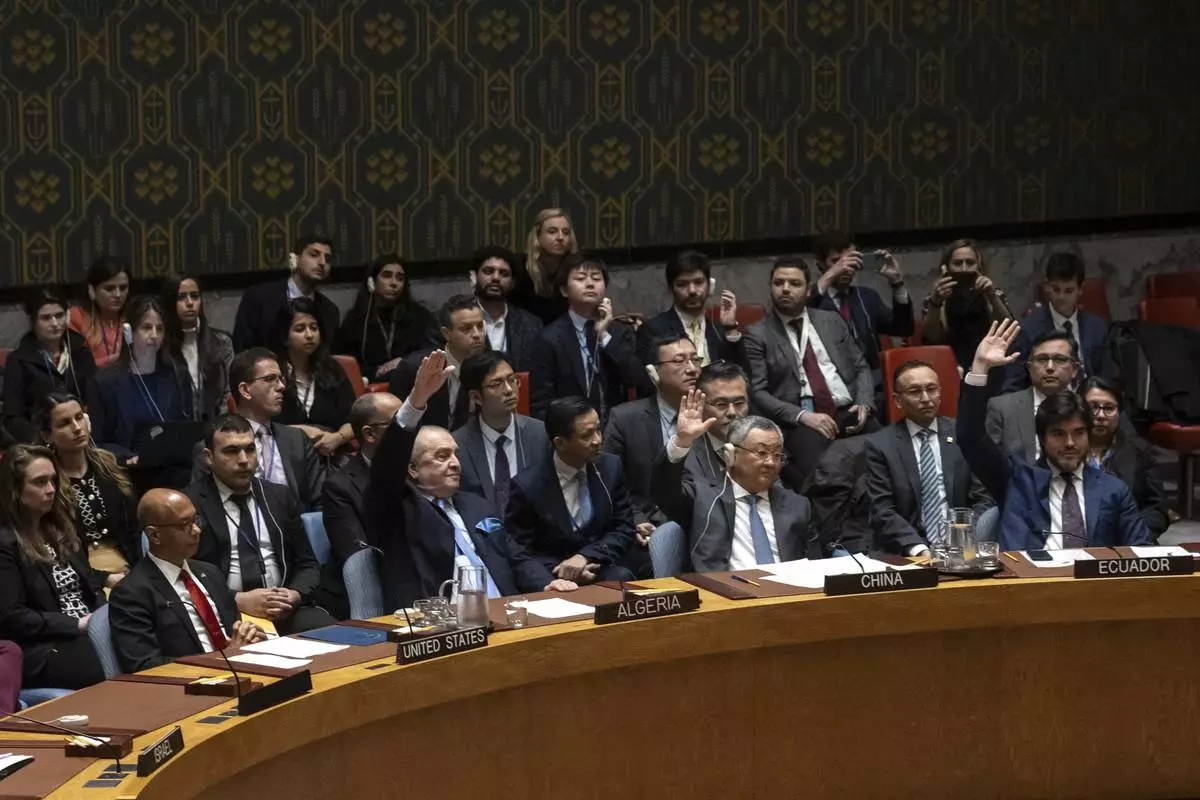
Representatives of member countries take votes during a Security Council meeting at United Nations headquarters, Thursday, April 18, 2024. (AP Photo/Yuki Iwamura)
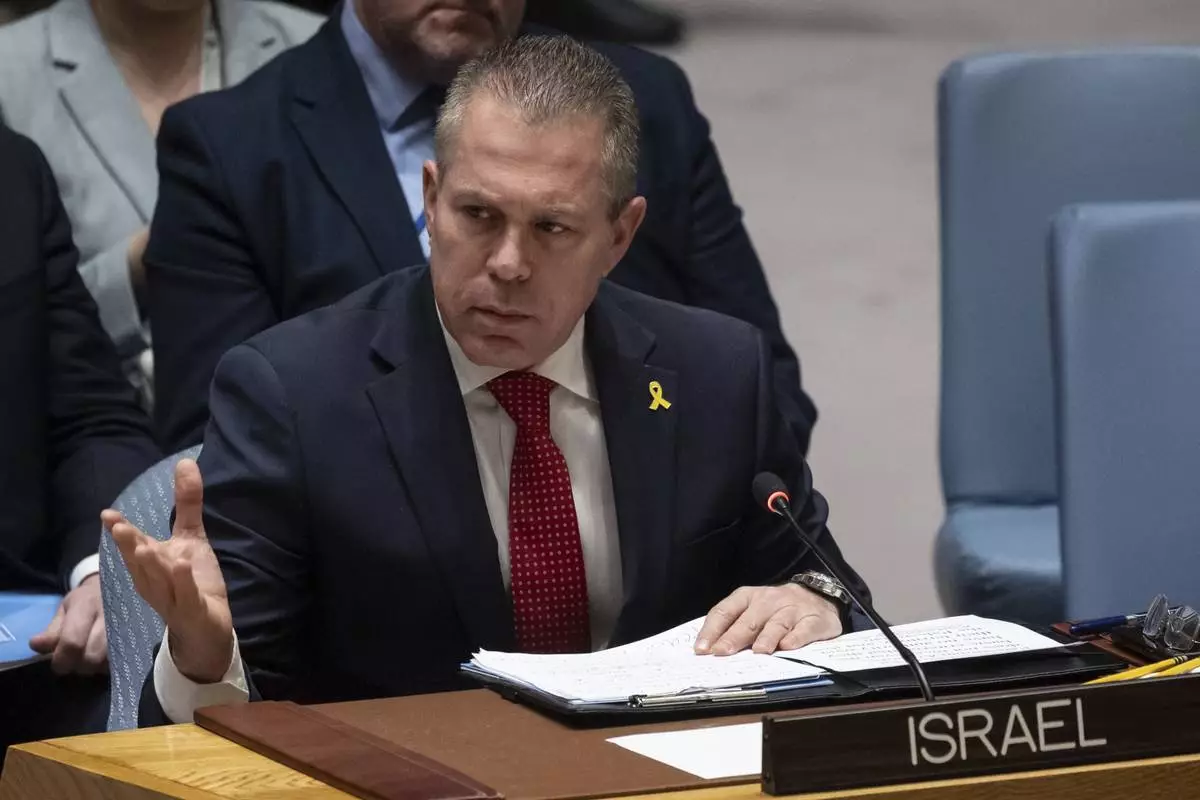
Israeli Ambassador to the United Nations Gilad Erdan speaks during a Security Council meeting at United Nations headquarters, Thursday, April 18, 2024. (AP Photo/Yuki Iwamura)
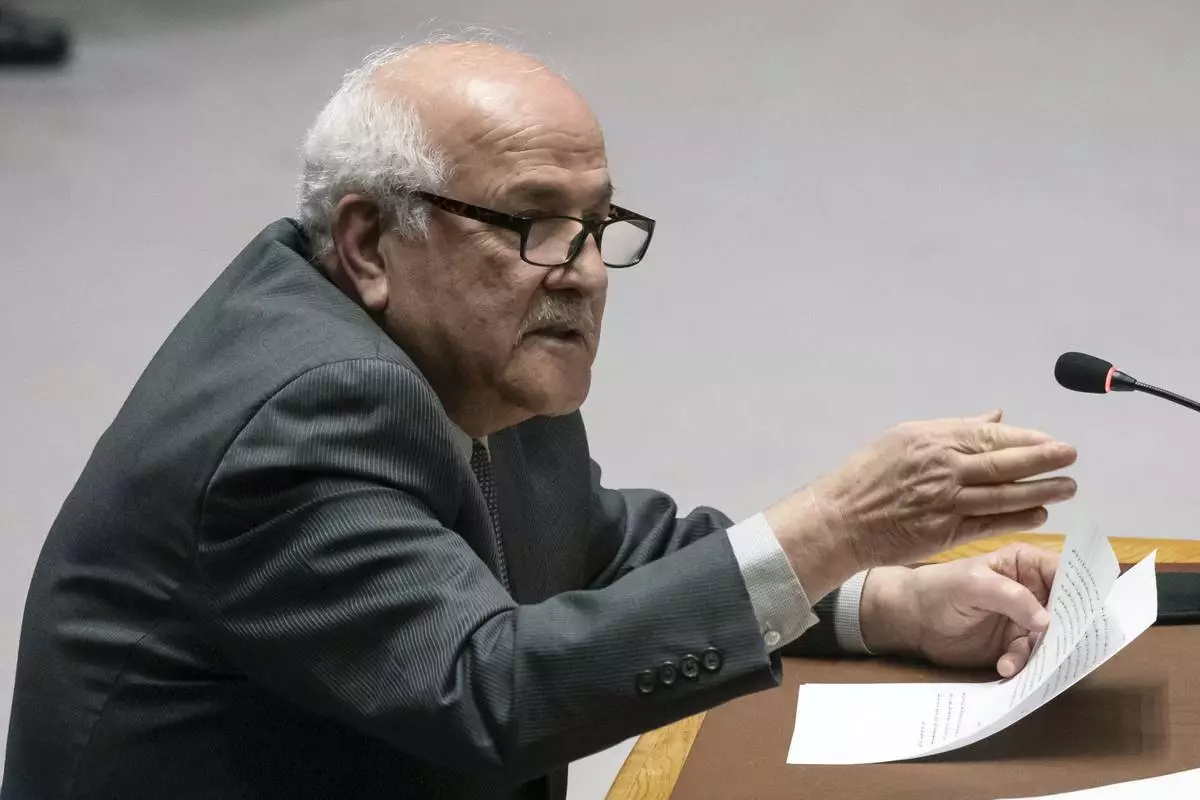
Palestinian Ambassador to the United Nations Riyad Mansour speaks during a Security Council meeting at United Nations headquarters, Thursday, April 18, 2024. (AP Photo/Yuki Iwamura)
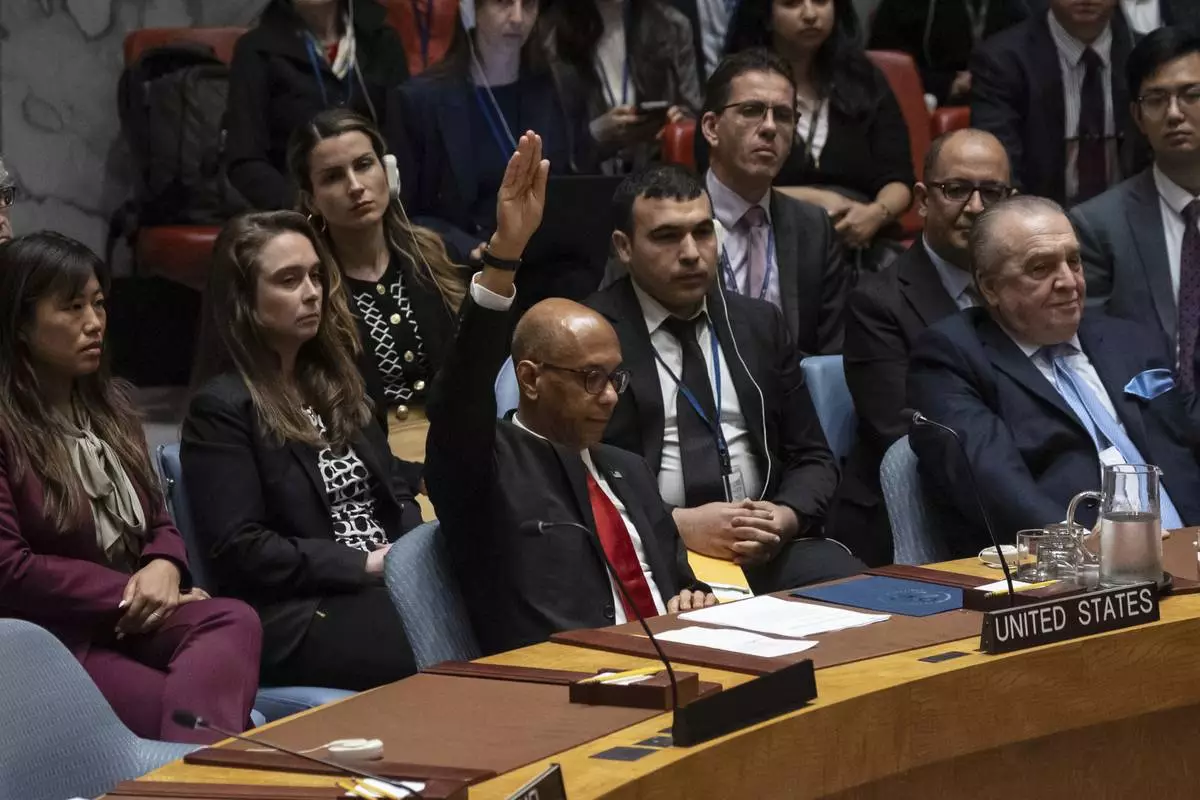
U.S. Deputy Ambassador Robert Wood votes against resolution during a Security Council meeting at United Nations headquarters, Thursday, April 18, 2024. (AP Photo/Yuki Iwamura)


















